-

Forbidden Fruit
Could World War I have been averted if Franz Ferdinand and his wife hadn't been murdered by Serbian nationalists in 1914? What if Ronald Reagan had been killed by Hinckley's bullet? Would the Cold War have ended as it did? In "Forbidden Fruit", Richard Ned Lebow develops protocols for conducting robust counterfactual thought experiments and uses them to probe the causes and contingency of transformative international developments like World War I and the end of the Cold War. He uses experiments, surveys, and a short story to explore why policymakers, historians, and international relations scholars are so resistant to the contingency and indeterminism inherent in open-ended, nonlinear systems. Most controversially, Lebow argues that the difference between counterfactual and so-called factual arguments is misleading, as both can be evidence-rich and logically persuasive. A must-read for social scientists, "Forbidden Fruit" also examines the binary between fact and fiction and the use of counterfactuals in fictional works like Philip Roth's "The Plot Against America" to understand complex causation and its implications for who we are and what we think makes the social world work. -
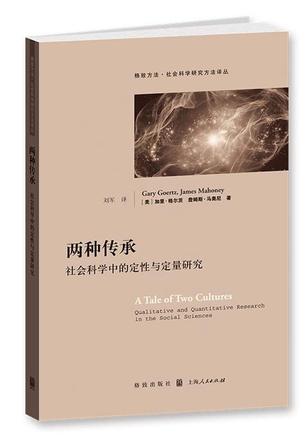
两种传承
定性和定量研究者在方法论导向和研究实践方面都采取了不同的方式,而且这两类研究者之间存在着误解和勉强的交流。本书将社会科学中的定量和定性研究作为独立的传承加以分析,在学术上促进理解这些传承在哪些方面存在差异以及差异背后的原理何在。 和KKV《社会科学中的研究设计:定性研究中的科学推断》一书的著名论断“定量与定性研究传统仅在风格上有差异,并且这些差异在方法论和实质意义上都不重要”不同,本书强调定量和定性研究的差异,某种程度上,这本书可谓KKV一书的姊妹篇。 -
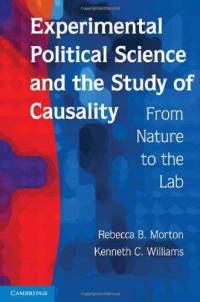
Experimental Political Science and the Study of Causality
Increasingly, political scientists are describing their empirical research or the reasoning behind their choices in empirical research using the terms "experiment" or "experimental." One of the primary reasons for doing so is the advantage of experiments in establishing causal inferences. In this book, Rebecca B. Morton and Kenneth C. Williams discuss in detail how experiments and experimental reasoning with observational data can help researchers determine causality. They explore how control and random assignment mechanisms work, examining both the Rubin causal model and the formal theory approaches to causality. They also cover general topics in experimentation such as the history of experimentation in political science; internal and external validity of experimental research; types of experiments - field, laboratory, virtual, and survey - and how to choose, recruit, and motivate subjects in experiments. They investigate ethical issues in experimentation, the process of securing approval from institutional review boards for human subject research, and the use of deception in experimentation. -
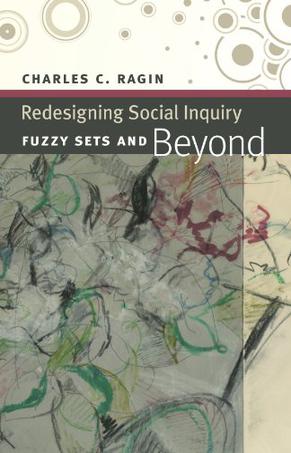
Redesigning Social Inquiry
For over twenty years Charles C. Ragin has been at the forefront of the development of innovative methods for social scientists. In "Redesigning Social Inquiry", he continues his campaign to revitalize the field, challenging major aspects of the conventional template for social science research while offering a clear alternative."Redesigning Social Inquiry" provides a substantive critique of the standard approach to social research - namely, assessing the relative importance of causal variables drawn from competing theories. Instead, Ragin proposes the use of set-theoretic methods to find a middle path between quantitative and qualitative research. Through a series of contrasts between fuzzy-set analysis and conventional quantitative research, Ragin demonstrates the capacity for set-theoretic methods to strengthen connections between qualitative researchers' deep knowledge of their cases and quantitative researchers' elaboration of cross-case patterns. Packed with useful examples, "Redesigning Social Inquiry" will be indispensable to experienced professionals and to budding scholars about to embark on their first project. -
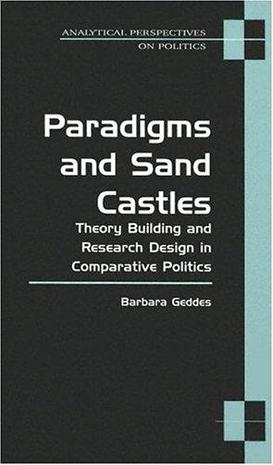
Paradigms and Sand Castles
-
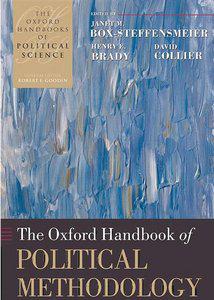
The Oxford Handbook of Political Methodology
Political methodology has changed dramatically over the past thirty years, and many new methods and techniques have been developed. Both the Political Methodology Society and the Qualitative/Multi-Methods Section of the American Political Science Association have engaged in ongoing research and training programs that have advanced quantitative and qualitative methodology. The Oxford Handbook of Political Methodology presents and synthesizes these developments. The Handbook provides comprehensive overviews of diverse methodological approaches, with an emphasis on three major themes. First, specific methodological tools should be at the service of improved conceptualization, comprehension of meaning, measurement, and data collection. They should increase analysts' leverage in reasoning about causal relationships and evaluating them empirically by contributing to powerful research designs. Second, the authors explore the many different ways of addressing these tasks: through case-studies and large-n designs, with both quantitative and qualitative data, and via techniques ranging from statistical modelling to process tracing. Finally, techniques can cut across traditional methodological boundaries and can be useful for many different kinds of researchers. Many of the authors thus explore how their methods can inform, and be used by, scholars engaged in diverse branches of methodology.